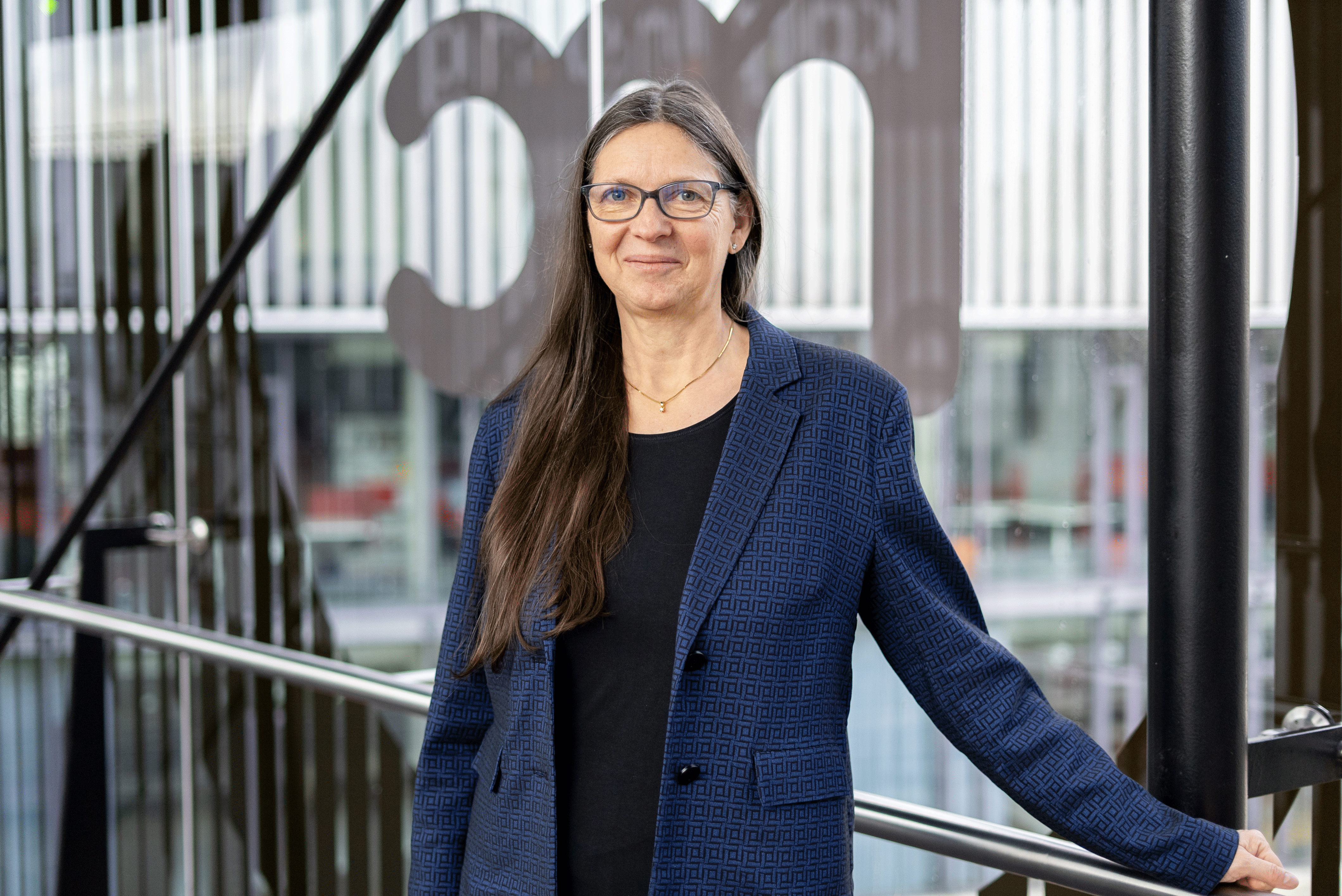On the occasion of the International Day of Women and Girls in Science and International Women’s Day, IMC Krems presents female scientists and their motives. This time: Claudia Oblasser, professor at the Institute for Therapeutic and Midwifery Sciences at IMC Krems.
Press
Claudia Oblasser: Scientist with a passion for health promotion and prevention

Research focus: health sciences with a focus on prevention
Claudia Oblasser’s research focuses on health sciences, particularly in the areas of health promotion and prevention. Her enthusiasm for this topic has deeper roots: “It resulted from my professional background as a midwife, the research structures of the university of applied sciences and the needs of modern society,” she explains. As a midwife, she was confronted with the topics of health and prevention early on and recognises the relevance of this area more than ever. It is particularly important to her that her work has a practical benefit for society and health professions and contributes to promoting people’s well-being.
Current research projects: focus on violence prevention and sustainable tourism
Claudia Oblasser is currently leading the research project LeVioPP (Learning about Violence in Professional Practice) at IMC Krems. In this project, she is working with her team and practitioners to develop online learning modules for health professionals, including midwives, occupational therapists, music therapists and physiotherapists, on the topics of “Domestic violence in professional practice” and “Client violence in professional practice”. The aim of this project is to prepare health care professionals to deal with violence in their professional practice and to provide them with practical learning material. In addition to this project, Claudia Oblasser is also involved in WeNaTour (Welfare – Nature – Tourism), a research project dealing with sustainable tourism. Here, too, online modules are developed to promote awareness of sustainability and its integration into the tourism sector.
From midwife to scientist
Claudia Oblasser is a perfect example of how a professional career can develop when you combine an interest in your own subject with a desire for knowledge. Her career began as a midwife, a job she did for 19 years. But even before she started her training, she was interested in “more knowledge” in her profession. While working as a midwife in Baden near Vienna, she completed a master degree at Thames Valley University, London – a challenge she mastered by distance learning, almost without the internet, and which laid the foundation for her scientific career. In 2013, she received a PhD scholarship at the City University of London, which made her dream of a PhD programme possible. She was motivated by a critical analysis of midwifery practice, coupled with her urge to question the effectiveness of actions in clinical practice.
Her interest in looking beyond the confines of the midwifery profession eventually led her to her professorship at IMC Krems. Today, she works as a professor at the Institute for Therapeutic and Midwifery Sciences, particularly in the interdisciplinary master programme in Angewandte Gesundheitswissenschaften (Applied Health Sciences).
Motivation and inspiration
Claudia Oblasser strives to be a person of integrity. She is convinced that our own being and actions not only influence our immediate environment but also have a meaning that extends beyond the here and now.
To maintain her inner equilibrium in all her tasks, she regularly seeks balance in nature. “Outdoors in the fresh air, I can let go of stress and recharge my batteries,” she says. Small rituals such as reading crime novels or regular massages also help her to find peace and draw strength for her varied work.
Women in science: a plea for more funding and equality
Claudia Oblasser is also concerned with the issue of the position of women in science. “Basically, you need enthusiasm for a topic and the scientific approach, stamina and a good network,” she emphasises. Female role models and good mentors are crucial for getting through difficult phases. However, she also emphasises that structural support for women is still necessary: ‘In our society, women are still disadvantaged compared to men. We need more support and targeted funding to ensure equal opportunities,’ she demands.
A life for science
Claudia Oblasser is an impressive example of how enthusiasm for learning, lifelong learning and the desire to have a positive influence on society can lead to a successful scientific career. Her work in the field of health sciences, particularly in health promotion and prevention, is a valuable contribution to a better and healthier future. She remains an inspiring role model for all those who choose a career in science and health promotion.
Three questions – three answers:
- Why did you choose a career in science?I didn’t choose a career in science: I just kept on learning and ended up in science.
- What do women in science need to succeed?Interest, a thirst for knowledge, self-discipline, stamina, luck, flexible working conditions, creative freedom, social support, structural support from society and politics
- Do you have any advice for young women and aspiring female scientists?Don’t be so critical of yourself, but approach things boldly and face challenges head on.
